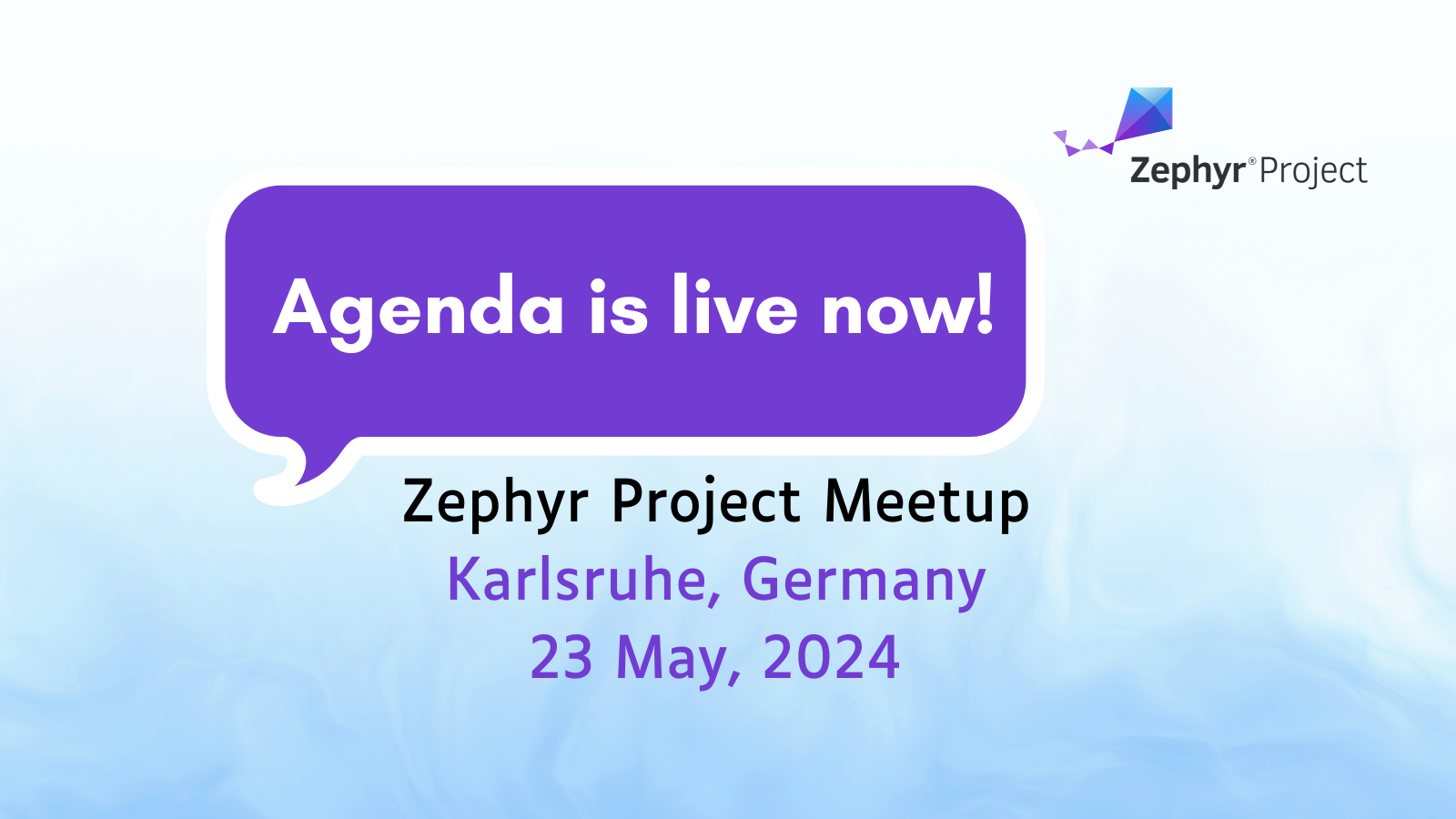We’re excited about this next meetup and invite you to join us this Thursday (May 14, 2024) at inovex GmbH office, Karlsruhe, Germany for an evening of insightful discussions and networking opportunities. But hurry, we have only a few seats left, so register now to secure your spot. Register here.

Here is a glance into the exciting agenda awaiting you:
Date: May 23, 2024
Location: Inovex GmbH, Ludwig-Erhard-Allee 6, Karlsruhe, Germany
Time: 18:00 PM – 10:00 PM CET
Presentations:
From Concept to Prototype: Building the inoCube with Zephyr RTOS by David Zerulla, inovex GmbH
The talk will start with an introduction of the inoCube and the necessary features the hardware needs to support. The hardware is based on the Thingy52 development board using Zephyr. We’ll discuss the challenges encountered, the straightforward aspects and how we integrated existing drivers and example code to create the inoCube. The following parts will be examined in detail:
– Building a small Add-On board to measure the temperature and a status
LED
– Reading the movement data of the 9-axis MPU9250 sensor
– Transmission of all collected data over Bluetooth Low Energy (BLE) to a mobile app
– Updating the device with over-the-air (OTA) using mcuboot
Zephyr’s new Hardware Model by Christian Kurz, Nordic Semiconductor
Shortly after Zephyr 3.6.0 was released, a new hardware model was introduced to Zephyr.
This presentation will give a brief introduction to this new hardware model.
How I fell in love with Zephyr – A system architects tale, Tobias Kästner, UL Methodpark
Tobias has been involved with system and software architectures for medical devices for more than ten years. In this time he has seen and and suffered through a lot of woes and problems, stemming from decades-old development procedures and ineffective communications within product development teams. In his talk I want to explain what profound impact technologies such as Kconfig or Devicetree can have on the collaboration of hardware and software developers. Being a big fan of model based systems engineering Tobias wants to provide numerous examples inspired by some of my real-world projects to show how system models can inform downstream engineering activities. In particular the Devicetree becomes an extremely powerful tool that once mastered can change the way you develop embedded systems for good. The talk concludes with some ideas about what the future might hold and what still needs to be done for the Zephyr project to succeed in the medical device and similar industries.
Device Trees in Zephyr – Navigating Hardware Diversity by Stefan Kratochwil, inovex GmbH
The bootup process of an embedded operating system typically begins with an evaluation of the surrounding hardware platform and the initialization of all required drivers. While many real time operating systems use hard-coded approaches, which are difficult to port from one hardware platform to another, Zephyr builds upon the concept of device trees. Known from the Linux kernel, device trees decouple the operating system from the underlying hardware platform by offering a machine readable platform description. This facilitates portability between platforms and architectures, which is an ever-growing demand also for embedded real time kernels such as Zephyr.
This talk gives an overview of the device tree concept, its implementation in Zephyr, and how it is used in the context of a Zephyr showcase implemented at inovex.
Step up with Zephyr by Jilay Pandya and Dipak Shetty, Zeiss Medical Technology
Zephyr Ecosystem already comprises of a variety of APIs, however a motor controller api is something that is still not present. Today’s presentation is about highlighting an ongoing motor controller api pull request and trying to present how zephyr community helped in refining the API, eventually leading to a solution that is more scalable and maintainable than where we began from.
Immerse yourself in these engaging sessions where attendees connect, share experiences, and discuss projects within the Zephyr ecosystem.
We have a table for swags and boards!
Additionally, don’t miss the opportunity to visit the Nordic Semiconductor stand, showcasing the latest evaluation boards. Explore these cutting-edge boards and, if you find something you like, seize the chance to take one with you.
If you’re excited about the Zephyr Project and want to share it with your local community, consider hosting an event in your city. Whether you’re in Karlsruhe, Germany or halfway across the globe, we encourage passionate individuals to get involved.
Reach out to us and explore how you can bring Zephyr to your community and make a difference in the world of IoT development.
To keep up to date about the project, subscribe to the Zephyr quarterly newsletter or connect with us on @ZephyrIoT, Zephyr Project LinkedIn or the Zephyr Discord Channel to talk with community and TSC members.